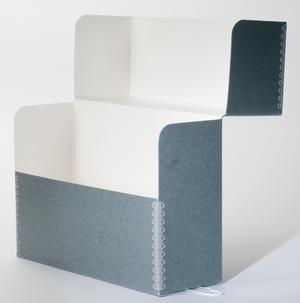- Contact Us
- Emergency Information
- Facility Rental
- Jobs
- Site Map
- Site Policies
- Web Accessibility
- Web Privacy
- © Harry Ransom Center 2025

SIGNATURES
Identified individuals are represented by a biographical sketch, a list of connections to other signatures, and, in most cases, an artifact from the Ransom Centers collections. Help us identify more signatures by submitting your suggested identification.
X
X
THE DOOR
 Location on door: back, panel 5
Location on door: back, panel 5
JOSEPHINE HERBST
Fiction writer and journalist Josephine Herbst (1892-1969) earned the respect of her literary peers with her first novel, Nothing is Sacred (1928). Reviewing the title for the Bookman, Ford Madox Ford raved, "it took command of my intelligence with its first sentence," while a reviewer for the New York Times compared it favorably with the early writing of Ernest Hemingway. By the time Herbst published this volume, she had worked as a reader for Smart Set and had traveled to Weimar Republic Germany and then to Paris, where she met writer and future husband John Herrmann. The couple returned to the United States in 1924 and throughout the 1930s Herbst wrote Marxist, socially-engaged novels, but her political commitments were not limited to expression in fiction. In 1935, she reported from Cuba during the General Strike, and in 1937 she was one of the few female correspondents working on the front lines of the Spanish Civil War. "Following the Circle," Herbst's early and unpublished novel, was inspired by her experiences in Greenwich Village from 1920 to 1921. It explores women's inability to escape the constraints of gender roles even in a Bohemian setting.

The opening pages of an album of photographs with Josephine Herbst's typed interleaved reminiscences, undated
This album records Herbst and Herrmann's travels, writing life, and interactions with literary peers. In this portion of the album, Herbst recalls the mid-to-late twenties, including memories of friend Katherine Anne Porter and the struggles she and Herrmann experienced with publication. The relationship between Herbst and Herrmann deteriorated by the mid-thirties, and they divorced around 1940.

